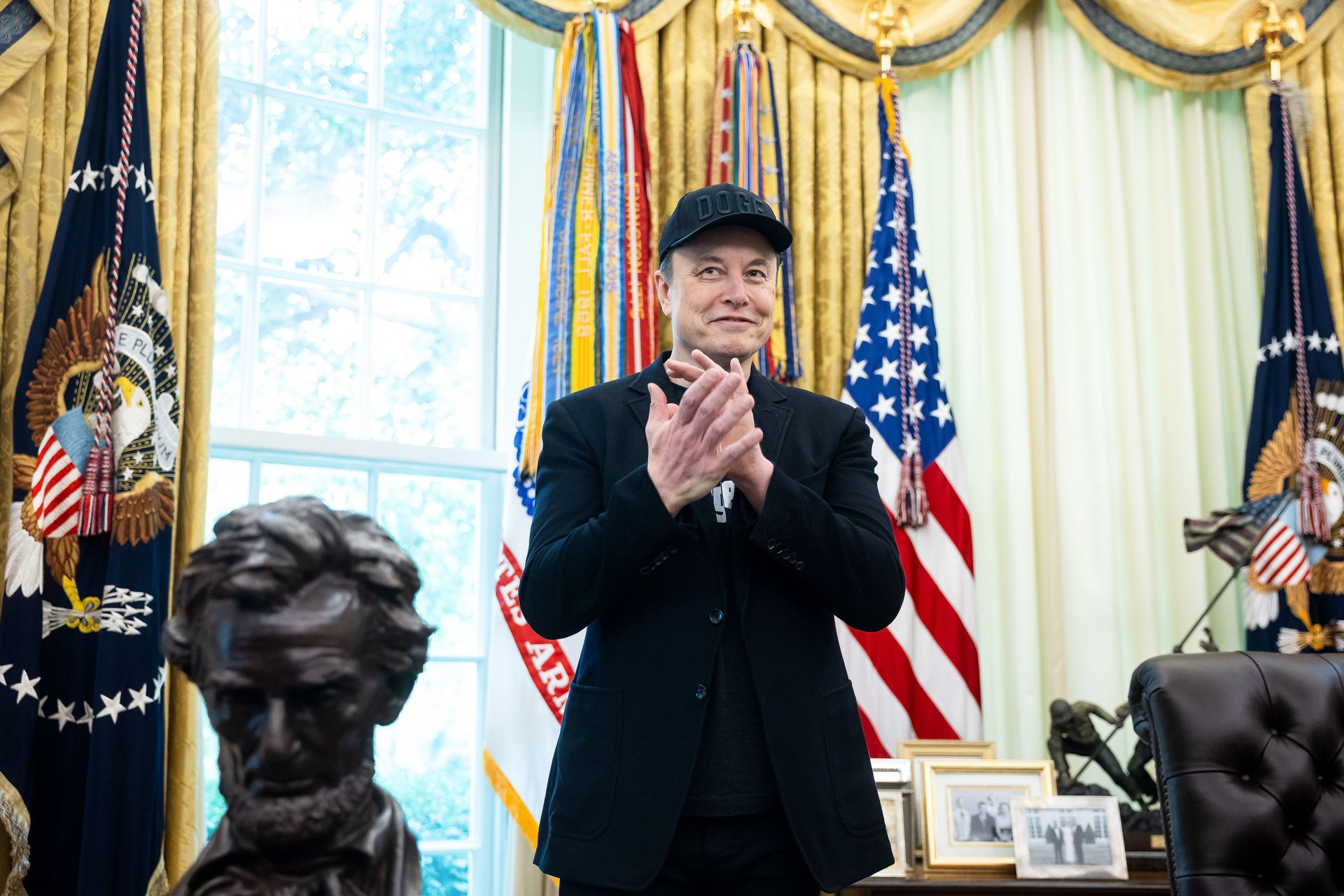Tesla sets up a potential $1 trillion pay day for Elon Musk
Tesla’s board wants shareholders to approve a $1 trillion pay package that could cement Musk’s control — if he clears new valuation and AI targets

Francis Chung/Politico/Bloomberg via Getty Images
Elon Musk has never been a conventional CEO, and Tesla’s board doesn’t want him compensated like one. On Friday, directors proposed a 10-year pay package that could deliver Musk as much as $1 trillion in stock awards if the company clears a set of extraordinary performance hurdles.
Suggested Reading
The deal would grant Musk roughly 423 million Tesla shares, currently worth about $143 billion, but the full value only materializes if Tesla executes on a series of rather ambitious targets.
Related Content
The first tranche would vest when Tesla’s market capitalization hits and sustains $2 trillion, with additional tranches tied to every $500 billion increment after that, up to $6.5 trillion. The final tranches vest if Tesla reaches $8.5 trillion in market value — a target that would make it far and away the most valuable publicly traded company on earth.
But valuation alone won’t do it. Under the pay package, Tesla must also deliver 20 million vehicles annually, put 1 million autonomous robotaxis into commercial service, deliver 1 million Optimus humanoid robots, and sign up 10 million active subscriptions for its Full Self-Driving software. On the financial side, the bar is just as high: Adjusted EBITDA must start at $50 billion and eventually reach $400 billion over four consecutive quarters, even as Tesla continues to pour billions into AI and robotics R&D.
If Musk clears all those hurdles, his ownership stake could more than double — from about 12% of outstanding shares today to more than 25%. That would give him even greater control over Tesla’s direction at a time when the company is trying to reinvent itself as an AI and robotics powerhouse, not just an electric carmaker.
For Tesla’s board, the calculation is simple: Musk is Tesla.
“The biggest asset for Tesla is Musk,” Wedbush analyst Dan Ives wrote in a Friday note, maintaining his “Outperform” rating and sky-high $500 price target. He argued the package was “critical to keep Musk at the helm” through what he described as the company’s most consequential growth cycle, with autonomy and robotics “front and center.” The proxy filing also calls for a nonbinding shareholder vote on a strategic investment in Musk’s xAI startup, designed to accelerate Tesla’s AI development and create what the company claims could be one of the most powerful AI platforms in the world.
Lately, though, Tesla’s EV engine has sputtered, and that weakness has only magnified concerns about Musk’s attention span.
Tesla’s second-quarter deliveries fell 13% year over year to 384,122 vehicles, its second consecutive quarterly drop and the sharpest mid-year slowdown since 2022. Revenues slipped 12%, and profit fell 16%, with Europe and China showing the steepest losses. The stumbles come as rivals such as BYD extend their lead in China and European incumbents eat into Tesla’s market share. The company’s energy-storage business is still growing, but it’s nowhere near large enough to offset the shortfall in cars.
Against that backdrop, Musk has been increasingly preoccupied with politics and side projects. He accepted a role heading President Donald Trump’s Department of Government Efficiency (DOGE), said he was starting a third political party (the “America Party”), name-called the president, and pushed controversial policies on X — all while Tesla’s core business has struggled.
Shareholders have noticed. Some have openly pressed Musk to commit at least 40 hours a week to Tesla, worried that his forays into Washington and social media are draining focus at a time when execution is critical. For the board, the trillion-dollar pay package is less a bonus than a tether — an attempt to bind Musk to Tesla through 2030 and assure investors that the CEO remains fully engaged in the company’s make-or-break pivot from EVs to autonomy and AI.
That means that this package carries major implications for Tesla’s governance and shareholder structure. If Musk meets its ambitious targets, his stake in the company could more than double, consolidating greater control in one individual as Tesla’s oversight faces legal scrutiny. A Delaware court voided Musk’s previous $56 billion compensation deal in January 2024, ruling that the board failed to exercise sufficient independence in approving it. That decision, now under appeal, forced Tesla to assemble a $29 billion interim award last month while it worked on a long-term plan.
The stakes extend beyond compensation. For Tesla, the package is a statement of intent about what the company is trying to become. The company, which once lived or died by Model 3 deliveries, is pitching itself as a leader in artificial intelligence, autonomy, and robotics — a transition that apparently requires both investor patience and Musk’s sustained involvement at the center of the company’s evolution, even as he juggles SpaceX, X, and a growing portfolio of AI ventures.
The plan now goes to shareholders, with a vote scheduled for Nov. 6. And those shareholders face a familiar question: How much turbulence are they willing to tolerate in exchange for growth? They’ve long accepted volatility, governance drama, and Musk’s distractions so long as Tesla kept climbing. This package asks them to double down. If it passes, it would mark the richest compensation plan in corporate history and a high-stakes bet that Tesla’s next act can justify dangling a trillion-dollar prize.
